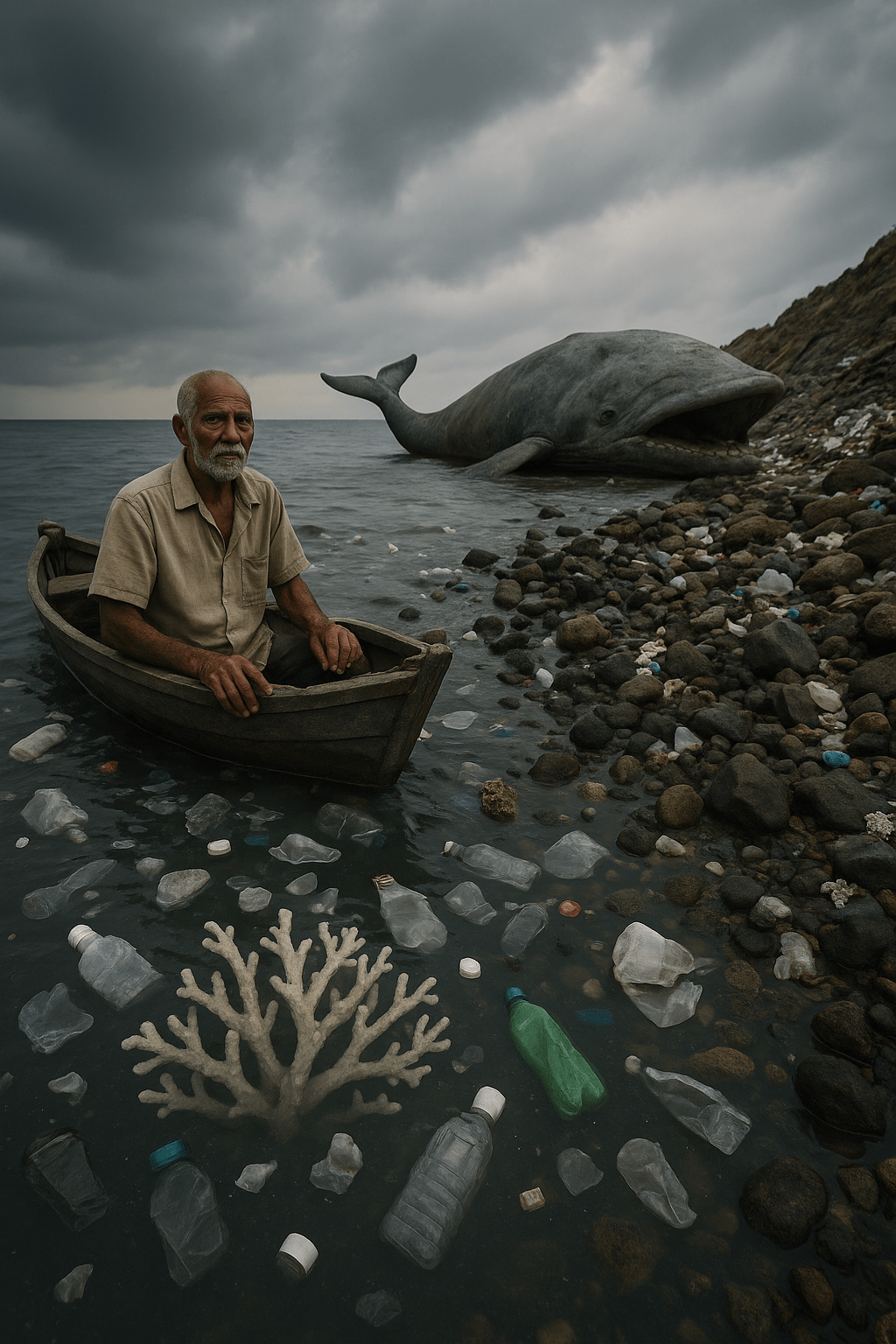
The Ocean’s Silent Scream
Share
If you’ve ever stood by the ocean on a calm morning, you might think it’s eternal, unshakable — that this blue giant has been here since the dawn of time and will outlast us all. But what if I told you the ocean is screaming… silently? And that scream is getting louder each year, but most of us can’t hear it?
The truth is, the ocean — the very lungs of our planet — is suffocating. Half of the oxygen we breathe comes from phytoplankton, tiny marine plants drifting in the water. But warming seas, pollution, and acidification are killing them. Imagine this: you’re at a birthday party, but someone is slowly letting the air out of the room. You can still breathe — for now — but it’s getting harder and harder. That’s our planet.
A Tale from the Maldives
I once met a fisherman in the Maldives, an elderly man with hands as rough as coral. He told me how his father taught him to read the ocean — “The fish will tell you when the sea is healthy,” he said. But now? The fish are gone. Reefs that once exploded with color are ghostly white. He laughs bitterly, saying, “Tourists still take photos… but they don’t know they’re photographing a graveyard.”
The Plastic Invasion
Every minute, the equivalent of a garbage truck full of plastic ends up in our seas. Some of it washes back onto shores. Some sinks to the deep. And some breaks down into invisible microplastics. A study found that humans now consume about a credit card’s worth of plastic every week through water, food, and even the air we breathe.
So yes — congratulations — you might be part plastic now.
When Whales Wash Ashore
In 2019, a dead whale washed up in the Philippines with 88 pounds of plastic in its stomach. Plastic bags, rope, shopping bags, even flip-flops. The whale had starved to death, its stomach full but its body empty.
Solutions That Float
-
Ban single-use plastics — Countries like Rwanda and Kenya have proven it works.
-
Ocean clean-up tech — Projects like The Ocean Cleanup are building floating barriers to collect plastic before it reaches the open sea.
-
Marine protected areas — Studies show that closing off even small parts of the ocean allows fish populations and coral reefs to recover dramatically.
-
Conscious consumer choices — Supporting products with zero or minimal plastic packaging.
If the ocean’s silent scream turns into silence, it won’t just be whales and coral reefs we lose — it will be us.
